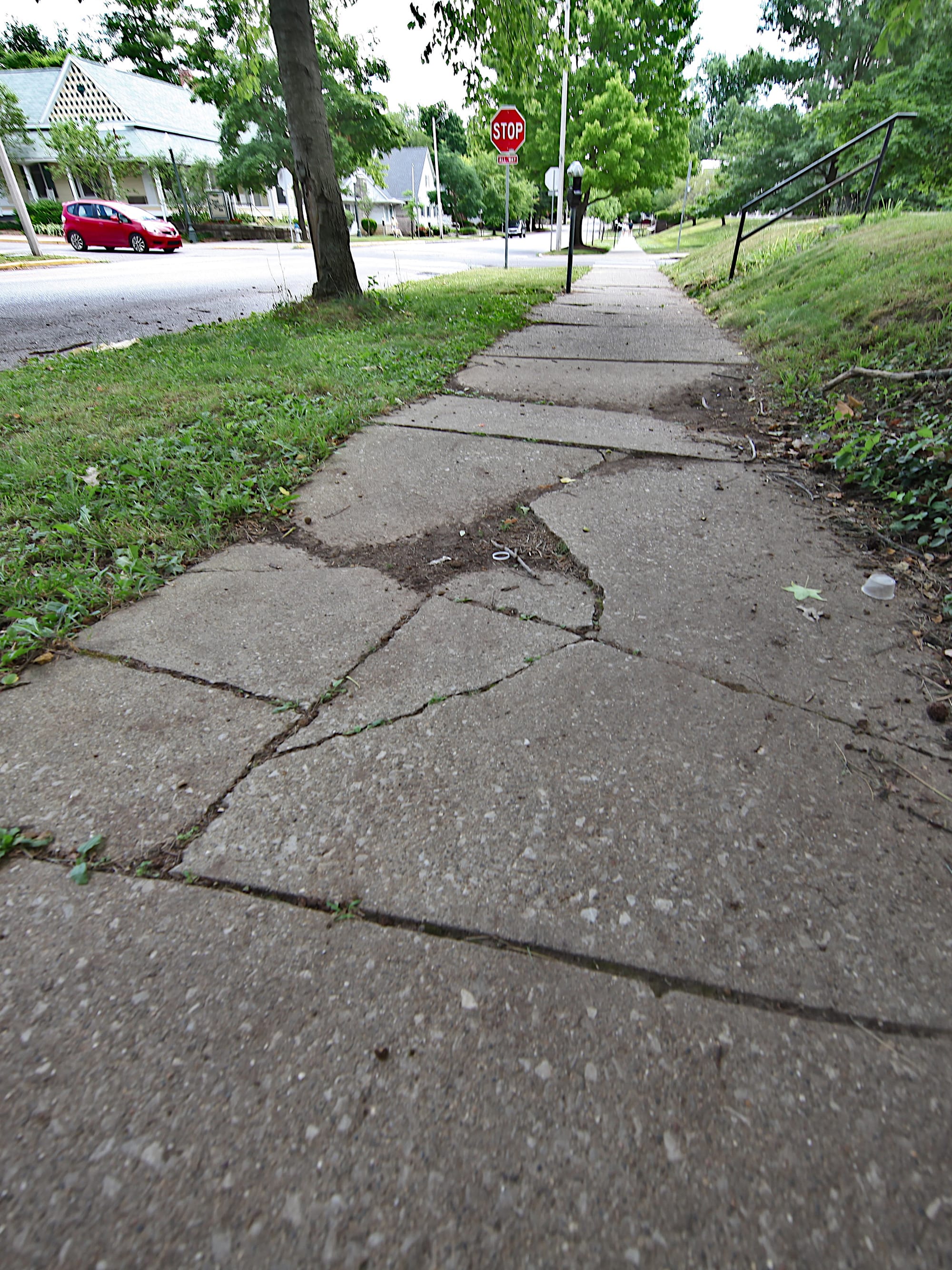Bloomington city council critical on first night of 2022 budget hearings: police, parking, sidewalks




On Monday, the first night of departmental hearings on Bloomington mayor John Hamilton’s proposed 2022 budget, several city councilmembers conveyed their dissatisfaction about one or more aspects of next year’s financial plan.
Those points of friction included police officer compensation, a parking cashout program for city employees, and alternative transportation funding.
Even though Tuesday is the night scheduled for public safety budgets, Hamilton fielded sharp questions on Monday from councilmembers Dave Rollo and Susan Sandberg about the adequacy of compensation for Bloomington police officers.
Rollo even floated the idea that the current collective bargaining agreement (CBA) with the police union could be reopened to provide higher compensation. The current CBA, approved in late 2019, runs through 2022.
Rollo and Sandberg have concerns about recruitment and retention of police officers. Bloomington currently has 92 sworn officers, which is 13 fewer than the 105 that are authorized.
Rollo doesn’t see the $250,000 pool of retention and recruitment funds in the 2022 budget as adequate.
At one point during Monday’s meeting, Sandberg asked Hamilton, “Do you feel the same sense of urgency that some of us do from having talked to our officers that are currently stressed to a point that I think is almost bordering on a crisis?”
The topic of police staffing levels is certain to be a highlight of Tuesday’s budget hearing, when police chief Mike Diekhoff presents his department’s budget.
Unlike the individual departmental budget presentations, Hamilton’s overview of the budget on Monday was not subjected to an informal straw poll.
The dissatisfaction expressed by the council at Monday’s meeting was not confined to the mayor’s overview.
If the city council’s straw polls had any legal significance, only two of the six departmental budgets presented on Monday would have been approved. The tallies on the straw polls (yes-no-abstain) were: human resources (3–1–5); legal (8–0–1); information technology (4–0–5); council office (6–2–1); controller (4–4–1); and mayor’s office (5–0–4).
A point of friction between councilmembers and human resources, as well as the controller’s office, was the fact that Hamilton’s administration has not yet implemented a parking cashout program for employees.
A group of four councilmembers—Steve Volan, Matt Flaherty, Kate Rosenbarger, and Isabel Piedmont-Smith—included a suggestion for a parking cashout program as their input to the administration’s budget. That input took the form of a document that was posted to the city’s budget web page in early July.
Parking cashout programs analyze employee parking spaces as a benefit that employers can provide to workers. Such programs give workers who don’t use a parking space some other compensation—cash instead of a parking space. The idea is to encourage employees to use some other form of transportation, like taking the public bus, carpooling, walking, or riding a bicycle.
Implementing a parking cashout program is a part of Bloomington’s climate action plan, which was adopted by the city council earlier this year.
About the fact that Bloomington has not yet implemented a parking cash out program, Flaherty said on Monday, “I’m a little frustrated, frankly.” He added, “I feel like if the administration was committed to implementing this, we would see it right now.”
Another point of friction between the four and the administration is the inclusion again this year of alternative transportation funds in the city council’s own budget. The council’s sidewalk committee has historically made recommendations to the full council on the use of the funding, which in the last few years has amounted to around $330,000.
Near the start of 2021, the council voted 5–4 to eliminate its sidewalk committee and to assign its responsibility of making recommendations about sidewalk project funding to the council’s transportation committee.
The committee’s work had been put under close scrutiny by a report done by Bloomington citizen Mark Stosberg, which called into question the equitable geographic allocation of sidewalk funding over the last 17 years.
At that time, the idea was floated to pool the council’s allocation of alternative transportation funds with the rest of those funds, under the control of the planning and transportation or engineering departments. As a part of that debate, councilmember Dave Rollo described the council’s direct control of the money as hard won in the past—he was not eager to give up that control.
On Monday, Piedmont-Smith said, “The decision on how to spend our sidewalk funds should really be separated from political concerns of council members.”
In response to city council administrator/attorney Stephen Lucas’s request for input into the city council’s budget, Flaherty and Piedmont-Smith both said on Monday they had not requested to move the alternative transportation funding out of the council’s budget.
Still, Flaherty indicated that’s the kind of change he’d like to see between now and the time when the administration presents its final budget in September.
As Flaherty put it, “I think of all of these budget meetings over the next four days as kind of the first step in the process.” Flaherty added, “Hopefully we…see changes to a number of department budgets based on councilmember feedback, and ongoing collaboration and conversations.”
Bloomington’s city council has not historically used a formal mechanism—like a vote on a resolution—for conveying to the administration a majority view of requested changes to the annual budget.
In late 2020, at a city council work session, Piedmont-Smith floated a suggestion for a budget process that would entail taking votes on recommended amendments to the administration’s proposed budget. Those amendments that achieved a majority of council votes would become a part of the council’s message to the administration.
Responding to Piedmont-Smith’s suggestion, then-deputy mayor Mick Renneisen joked, “I’m getting hives.” His concern was that the council might have majority support for two amendments that were not logically consistent with each other. What should the administration do in that case?
Departmental budget hearings continue on Tuesday, Wednesday and Thursday of this week.




Comments ()